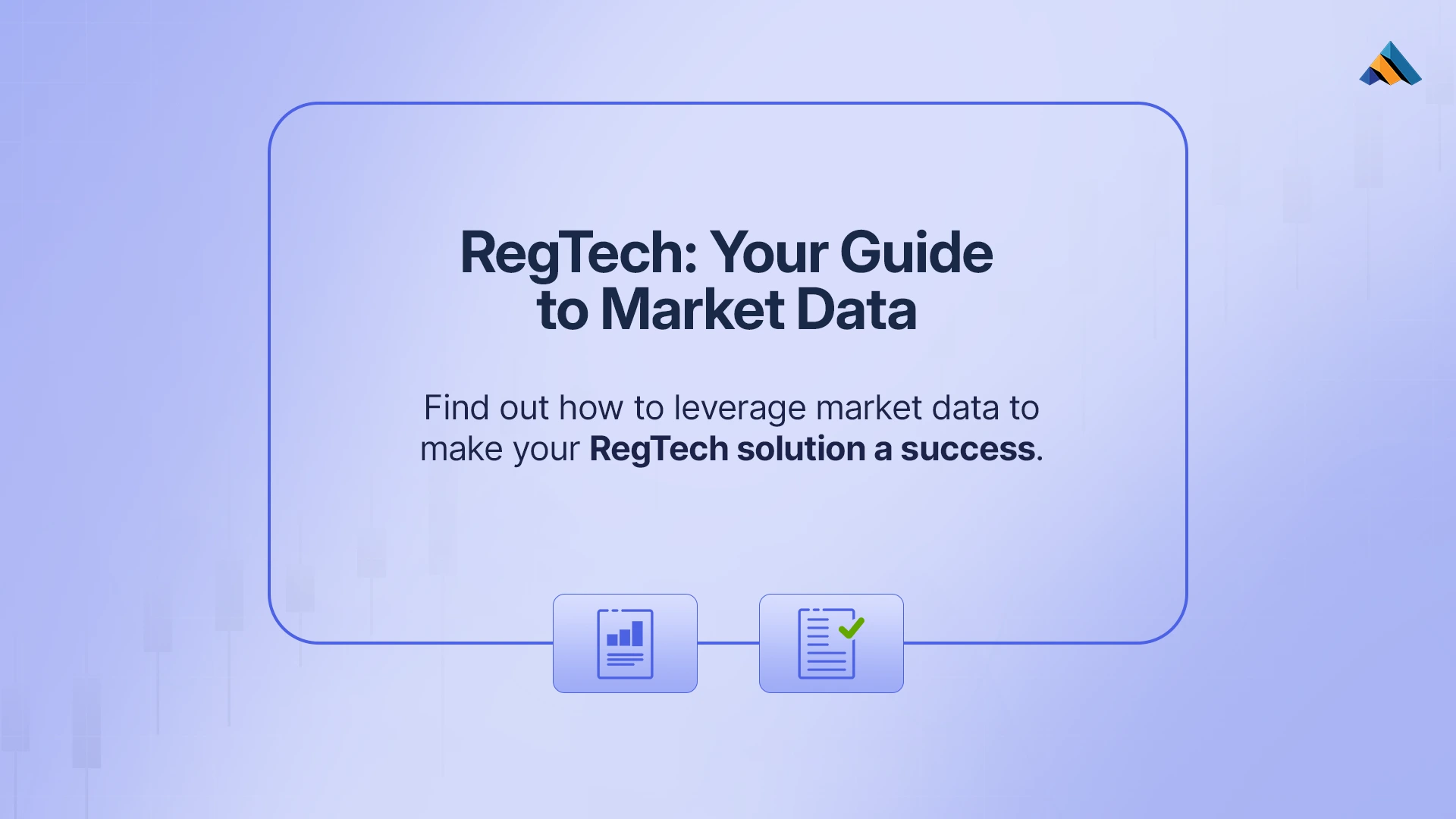McKinsey identifies three top drivers for RegTech adoption: enhanced risk management, enhanced reporting and monitoring, and reduced human error. All three depend on one foundation—accurate, independent market data.
RegTech platforms are designed to provide certainty through a comprehensive audit trail. However, that certainty is immediately undermined if the source data is opaque. When regulators (like ESMA, the FCA, or the SEC) or sophisticated clients conduct due diligence, they look beyond the platform's algorithm to verify the data's lineage.
The crucial question is no longer "How does your model work?" but "What market data did you use, and why should we trust it?" Simply relying on a 'proprietary model' leaves a critical gap in the narrative of defensible compliance that neither auditors nor supervisors will accept.
Your Regtech needs to answer three questions empatically.
1. "What was this worth at this exact moment?"
- The regulation: EMIR, EMIR REFIT, and SFTR demand accurate valuations "as of" specific timestamps. ESMA's Data Quality Indicators (DQIs) explicitly track valuation timeliness and consistency.
- The reality: Your answer can't be "our best estimate"—you need demonstrable market prices with clear methodology and an independent source.
2. "Was this execution price fair when you traded?"
- The regulation: MiFID II's best-execution requirements force firms to prove trades were executed at competitive prices relative to prevailing market conditions.
- The reality: You need tick-level or minute-level data to reconstruct spreads and liquidity at the exact time of execution. Without it, every execution becomes defensible only through internal records—which supervisors treat with skepticism.
3. "Do these numbers reflect reality or convenient fictions?"
- The regulation: Supervisors now deploy sophisticated analytics that compare reported prices against market benchmarks and flag outliers.
- The reality: Regulators intensify data quality scrutiny year-on-year. They're validating that your exposures align with observable market reality—not spreadsheet estimates.
Why Independent Data Is A Regulatory Requirement
Regulations explicitly require independent, verifiable market data sources. When financial institutions evaluate RegTech solutions, McKinsey highlights a critical prerequisite: focus on data quality. As a RegTech vendor serving regulated firms, you must demonstrate that your platform uses data that satisfies supervisory standards:
What Regulators Demand:
- Neutrality: Independent third-party sources—not affiliated with trading desks or single venues.
- Auditability: Documented methodology, transparent sourcing, contractual SLAs that auditors can verify.
- Consistency: One reference across all regulatory frameworks (EMIR, MiFID II, SFTR) so client reports withstand cross-checks.
- Traceability: Point-in-time reconstruction proving "this was the market price at that moment."
Why Your Clients Need This From You:
Your platform is their compliance solution. When regulators scrutinize their submissions, they're scrutinizing your data backbone. If you can't evidence independent, credible sources, your clients fail audits—and your platform loses credibility.
What Regulation-Grade Data Requires
If you're embedding data into a RegTech platform, demand these non-negotiables:
- ✓ Coverage matching your regulated universe: FX (majors, minors, emerging markets), CFDs (indices, single-stocks), plus crypto/equities/commodities as needed.
- ✓ Fit-for-purpose granularity: End-of-day for valuations, minute/tick for best-execution analysis, and point-in-time query capability.
- ✓ Historical depth: Ability to replay market conditions from any past timestamp—for corrections, audits, or regulatory requests months later.
- ✓ Clear methodology & stability: Consistent symbology, documented construction, and sensible holiday handling. Your rules shouldn't break when the calendar does.
- ✓ API-first delivery: Clean REST for live/historical queries and WebSocket for streaming. Engineers embed this into valuation engines and compliance modules seamlessly.
How TraderMade Powers RegTech Compliance
TraderMade addresses these requirements directly, delivering data engineered specifically to withstand any scrutiny:
- Multi-asset coverage: Real-time and historical FX (170+ pairs), CFDs (1000+), and crypto, covering wide range of instruments.
- Point-in-time precision: Query specific timestamps (e.g., "what was EUR/USD at 2023-03-15 16:47:33?") and get timestamped, sourced answers for EMIR valuations and MiFID II best-execution.
- Engineered for reuse: One feed supports valuations, TCA, data quality checks, and risk dashboards. Every module reads the same market truth—no reconciliation required.
- Independent & auditable: TraderMade is a neutral provider with transparent methodology, (SLAs) and the documentation independent vendor are expected to provide.
Final Word
RegTech lives on one promise: certainty under scrutiny. When regulators question valuations or auditors challenge reports, your answer must be: "Here's the independent market data, methodology, timestamp, and audit trail."
That's how compliance scales. That's how RegTech earns trust. That's how TraderMade helps you deliver it.
Ready to elevate your compliance strategy? Talk to us Today!


